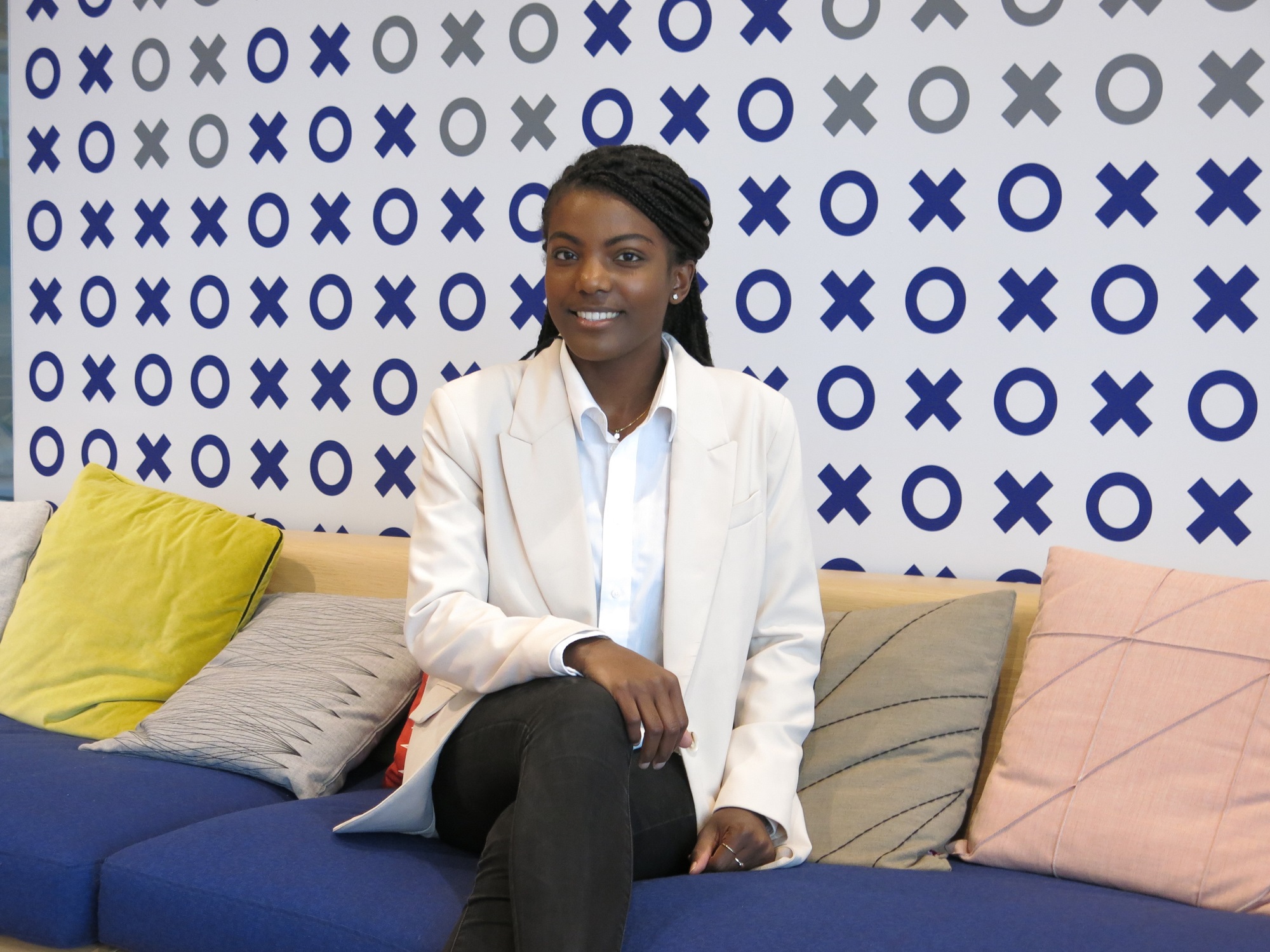Maite Gieskes wants to create products that have a positive impact for the people who need them the most. She won an award for her design of a low-field MRI-scanner.
Maite Gieskes: “I see it as my mission to design medical devices for people who need them the most.” (Photo: Heather Montague)
English only
“At the core I have always been a creative person, but I’m also very analytical and like to solve problems. Because of that it was a very straightforward decision for me to study Industrial Design Engineering and I loved it. During my bachelor’s I started thinking more about my role as a designer. I was more conscious about what a designer can mean to the world and what type of impact we have. I was also conscious that I didn’t want to design things only for consumer or luxury use. That’s why I was more interested in products that really mean something to people and that add value to their lives.
I did a double master’s in Biomedical Engineering and Industrial Design Engineering. For my master’s thesis I designed and developed a human-centred and sustainable low-field MRI scanner for low-to middle income countries. The core of the project is in line with my vision that I wanted to make sure that products I design have an impact for the people that use them. In the world we currently live in, a lot of people do not have access to medical devices and a lot of people die because they lack the ability to address their most basic needs. That’s where I saw a great opportunity to use my strengths. I was determined to use my technical competences from Biomedical Engineering, and I combine my societal and human-centred design skills from Industrial Design Engineering in order to encompass everything in one project.
Currently, around 100,000 children in sub-Saharan Africa are affected by hydrocephalus each year. Hydrocephalus is a condition where there is fluid inside the brain and when it’s left untreated it can lead to complications or even death. It is a really serious condition, but it can be treated if it’s diagnosed. The technology of the low-field MRI scanner uses 50 mT (millitesla), which is a very small magnetic field. It can’t yet detect things like conventional MRI scanners we see in modern hospitals, but it can detect hydrocephalus. For my thesis project, in collaboration with Leiden University Medical Center (LUMC), we designed a cheaper and portable MRI scanner that is more accessible than conventional MRI scanners so it can be used in lower to middle income countries. The design of such a system does not only have technological challenges, but also socio-economic challenges.
‘We designed a cheaper and portable MRI scanner that is more accessible than conventional MRI scanners’
For this project, I had to look at the whole design. Is it maintainable, is it usable for the people that are using it, is it applicable in the area that it’s going to? We don’t want to design a product that is just introduced in the lower resource setting, but we need to make sure that the products we design really add value, fit in the context and will be used for a longer period of time. I tried to listen to the user-needs of each important stakeholder that interacts with the product and add value to their experience. For the baby on one side, I designed a comfortable bed, which prevents patient movement, and for the MRI technician on the other side I designed the whole interface for them to be able to use it without the need for additional training.
At the moment, the low field MRI scanner is still in development at the LUMC. They have already conducted some field tests in Uganda. The tests went really well and with the data from that they continue to develop the scanner.
I did not expect to receive the award for my thesis, so I was happily surprised. I knew that the project was valuable for the people who would use the device and the LUMC had mentioned that my contribution was valuable but I never expected to receive an award for it. For me it was a big honour. I see it as my mission to design medical devices for people who need them the most so for me the award was also motivation to continue to do what I love doing the most. I am passionate about making a difference in the lives of those who need it the most through medical devices and believe we as designers and engineers can have a great influence in this. That’s I why I am dedicated to continuing in this field.
I just started working for Zimmer Biomet, a medical device company that designs and develops orthopaedic surgical tools. As a development engineer, my job is to identify the surgeons’ needs and translate, design and engineer this into a valuable product. It’s really combining the best of my competences.”
Want to be featured in Humans of TU Delft? Or do you know someone with a good story to tell? Send us an e-mail at humansoftudelft@gmail.com
Heather Montague / Freelance writer



Comments are closed.